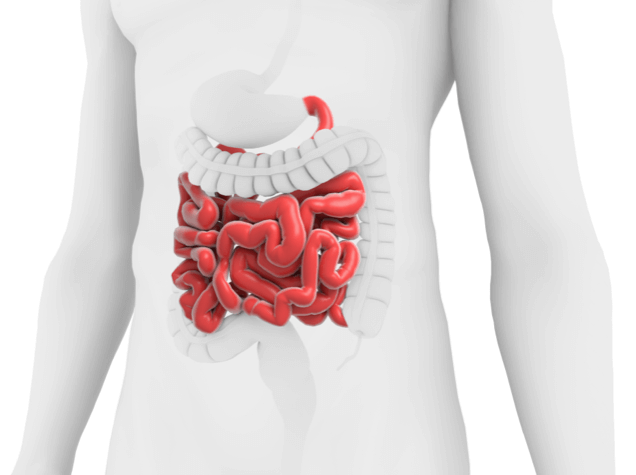Pathophysiology
The loss of functioning intestinal surface area in SBS results in decreased absorption of macronutrients, fluid and/or electrolytes wherein health and/or growth is unable to be maintained with a conventional diet and intravenous (IV) supplementation is required.5
Following extensive intestinal resection, structural and functional changes in the remaining intestine may occur to absorb more nutrients and fluid through a natural compensatory process called intestinal adaptation.10-12 This process is encouraged by the presence of nutrients in the gut lumen and the release of gut-related hormones—notably glucagon-like peptide (GLP)-1, GLP-2 and growth hormone. Intestinal adaptation can facilitate weaning patients from parenteral nutrition and IV fluid support.12 However, this process is affected by several factors, including a patient’s clinical status and remnant anatomy.12, 13












